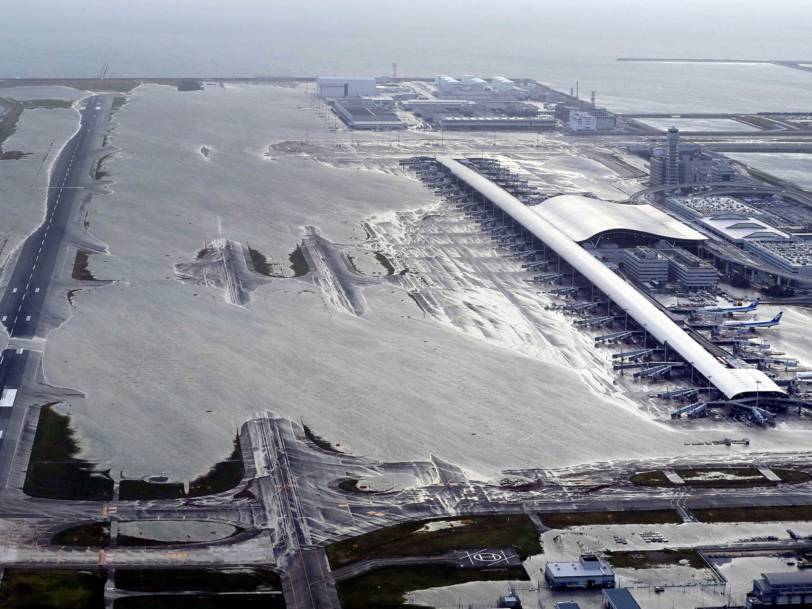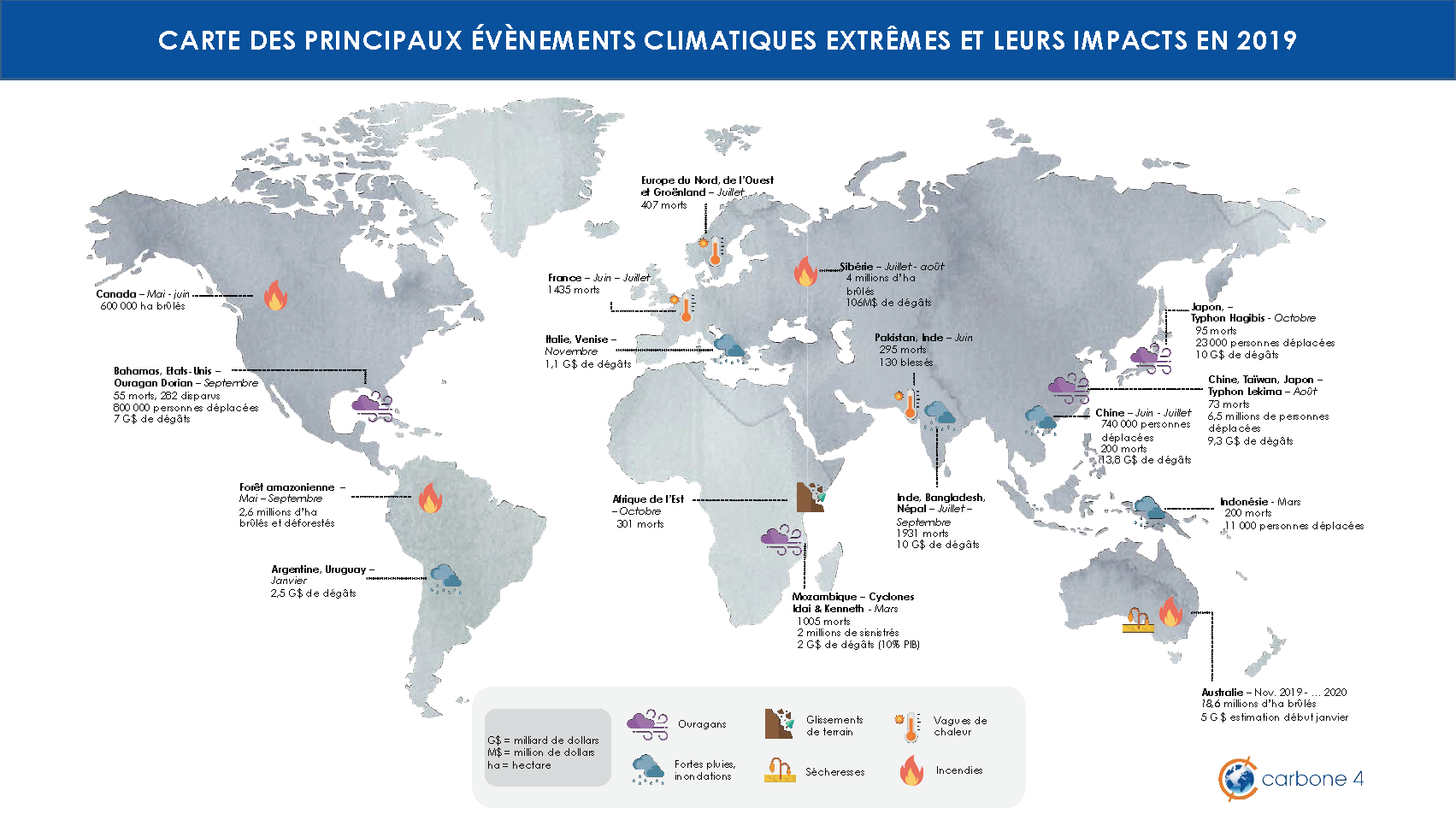Why is it relevant to link the impact of Covid-19 to climate risks?
By Violaine Lepousez, manager -
Resilience & climate risks adaptation Department The Covid-19 crisis is causing major disruptions to our supply chains, resulting in considerable economic and societal impacts on our economies. 94% of the largest US companies are reported to experience supply chain disruptions (Fortune, 21/02/2020). From the automotive industry to the pharmaceutical sector, the impacts are affecting both supply and demand. A recent note looked into the factors aggravating those impacts: a market sensitive to purchasing power, know-how present in restricted areas, manufacturing plants or raw resources concentrated in specific areas, etc. (Kyu, 17/03/2020). The epidemic risk would have been underestimated by the supply chain (Classe-export, 23/03/2020), i.e. this risk would not have been assessed and integrated into their business continuity plan.

Kansai International Airport flooded after typhoon Jebi in 2018
These systemic shocks to our economies can also be climate-related.
It is therefore necessary to qualify climate scenarios and to anticipate them. Explanations. The vulnerability of these same supply chains to climate change has already been illustrated: the floods in Thailand in 2011, the floods in Japan in 2018, the Rhine drought in Germany in 2019... These events have highlighted the fact that a climate hazard in one place can lead to economic losses worldwide. [caption id="attachment_13048" align="aligncenter" width="900"]

Rhine drought, 2019[/caption] However, global warming will increase the probability of more intense and frequent climatic hazards (heat waves, drought, floods, storms, etc.) throughout the world. It is therefore quite possible that distinct climatic events may occur simultaneously in different countries. The duration of these climatic events could also be extended: droughts can paralyse shipping lanes or electricity production for months. The spatial and temporal combination of climatic hazards can create a systemic risk to our economies. The risk analysis related to the impacts of climate change must therefore take into account the multi-hazard dimension of climate change: in other words, it is necessary to build scenarios of systemic climate shock. [caption id="attachment_13044" align="aligncenter" width="900"]

Map of Extreme Climate Hazards in 2019 - Carbon 4 Publication (french)[/caption]
Contactez-nous
Pour toute question sur Carbone 4, ou pour une demande concernant un accompagnement particulier, contactez-nous.








